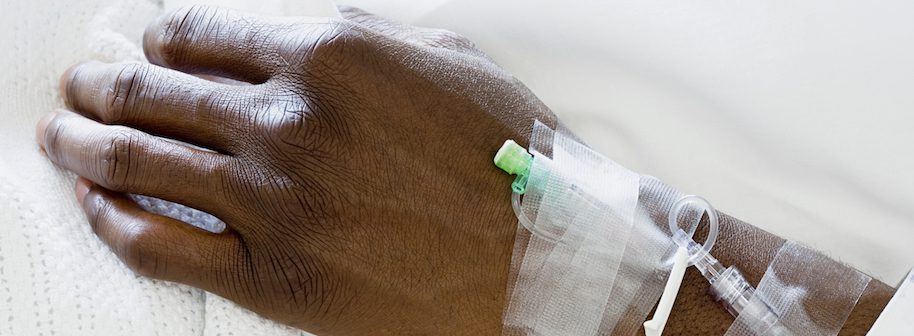

Researchers today are trying to determine what’s causing the disparities in hospitalizations and deaths of Black Americans during COVID-19.
New York and Louisiana are two vastly different states that have seen similar disparities among Black and minority patients. Two recent studies in these states published in the New England Journal of Medicine and The Lancet aimed to help communities understand the reasons for the disparities patients in Louisiana and New York health systems.
DISPARITIES
In the NEJM study of patients at Ochsner Health in Louisiana, researchers found that Black patients make up only about 31% of the health system’s population in Louisiana, but nearly 77% of the hospitalized patients with COVID-19 and nearly 71% of the patients who died in the hospital were Black. However, after factors such as health upon admission and socioeconomic factors were included in the analysis, it was found that the risk of dying in the hospital was no higher for Black patients than for white patients.
In the Lancet study of patients at Bronx Montefiore Health System in New York, researchers found that during the pandemic, Black patients had a 1.6 times higher risk of dying from COVID-19 than white patients. Hispanic patients had a higher risk as well.
The conversations within affected communities include how lifestyle contributes to the disparities. Researchers have determined people of color are most likely those who are essential workers and people living in urban areas. This is where community and researchers can work together to help determine the causes and find solutions.
SOCIAL DETERMINANTS
Working conditions, access to health care structural racism, and pre-existing chronic health conditions are just a few factors identified within recent published studies that contribute to disparities.
Researchers explained that in some places, greater numbers of minorities work in essential jobs and may be more easily exposed to COVID-19. There is unequal access to health care that may prevent Black patients from getting treatment for chronic health conditions like obesity and diabetes.
RACISM
Researchers also noted barriers related to systemic racism that make it hard for Black patients to get the same care as white patients. During COVID-19, when health care workers were distracted and overwhelmed, Black patients may not have received the same level of care as white patients resulting in more deaths.
SUPPORT
It is vital that people from all communities participate in research so the work will reflect their needs and concerns and can truly help improve health equity. Rutgers Institute for Health, Health Care Policy and Aging Research works to understand the factors that influence health disparities among racial and ethnic minorities and other populations.
One of the Institute’s current projects is the New Jersey Population Health Cohort Study, which is focused on things like trauma, stress, resilience, and well-being, and how they affect New Jersey families, immigrant groups, minorities and low-income households.
If you’re interested in learning more about research in general or information about a specific health topic, please join our community at https://ifh.rutgers.edu/register/.
Numerous efforts continue to track and analyze the impacts of COVID-19 on racial and ethnic minorities. For more data and resources visit:
CDC’s Demographic Trends of COVID-19 (https://www.cdc.gov/covid-data-tracker)
The Atlantic’s COVID Racial Data Tracker (https://covidtracking.com/race)
Emory University’s COVID-19 Health Equity Dashboard (https://covid19.emory.edu)